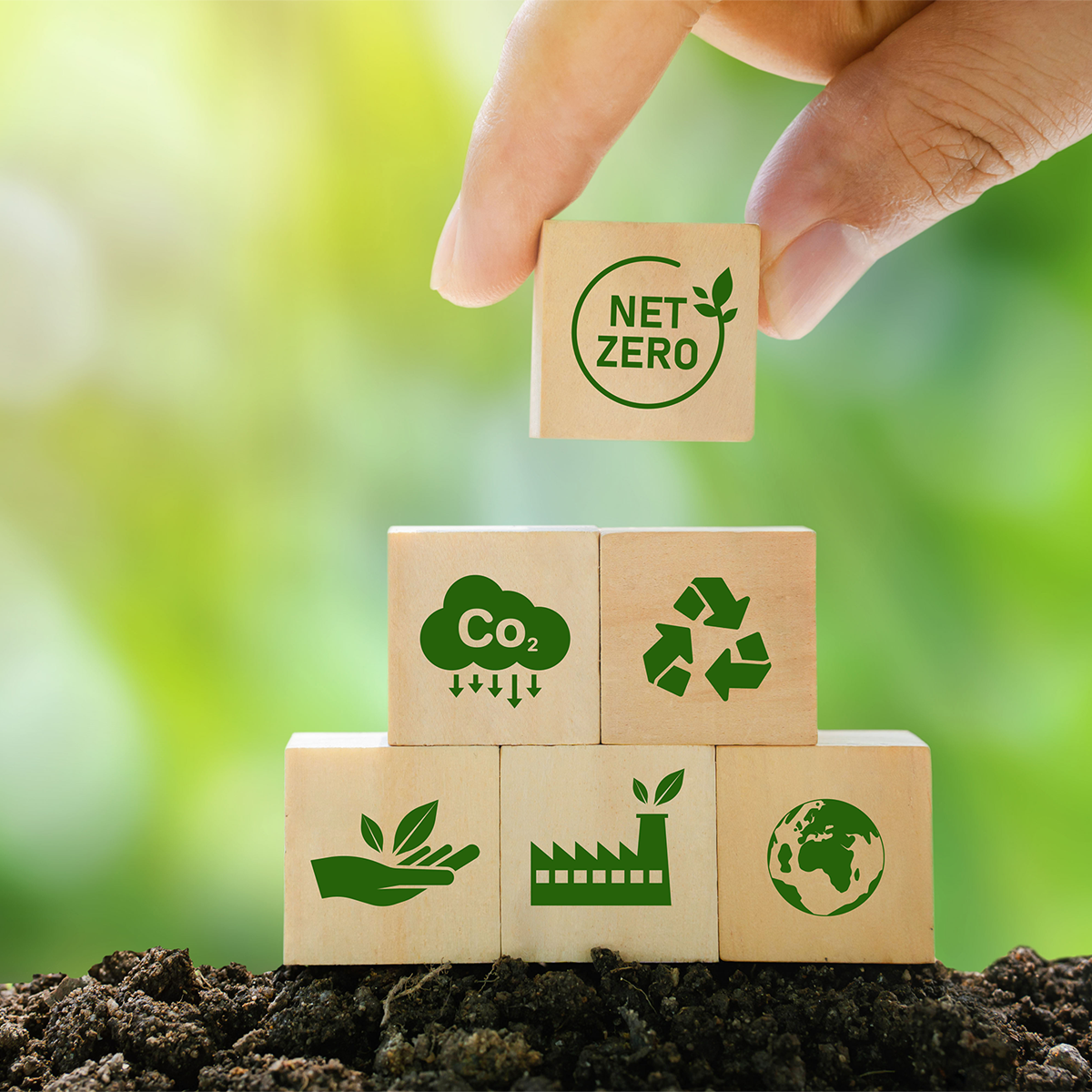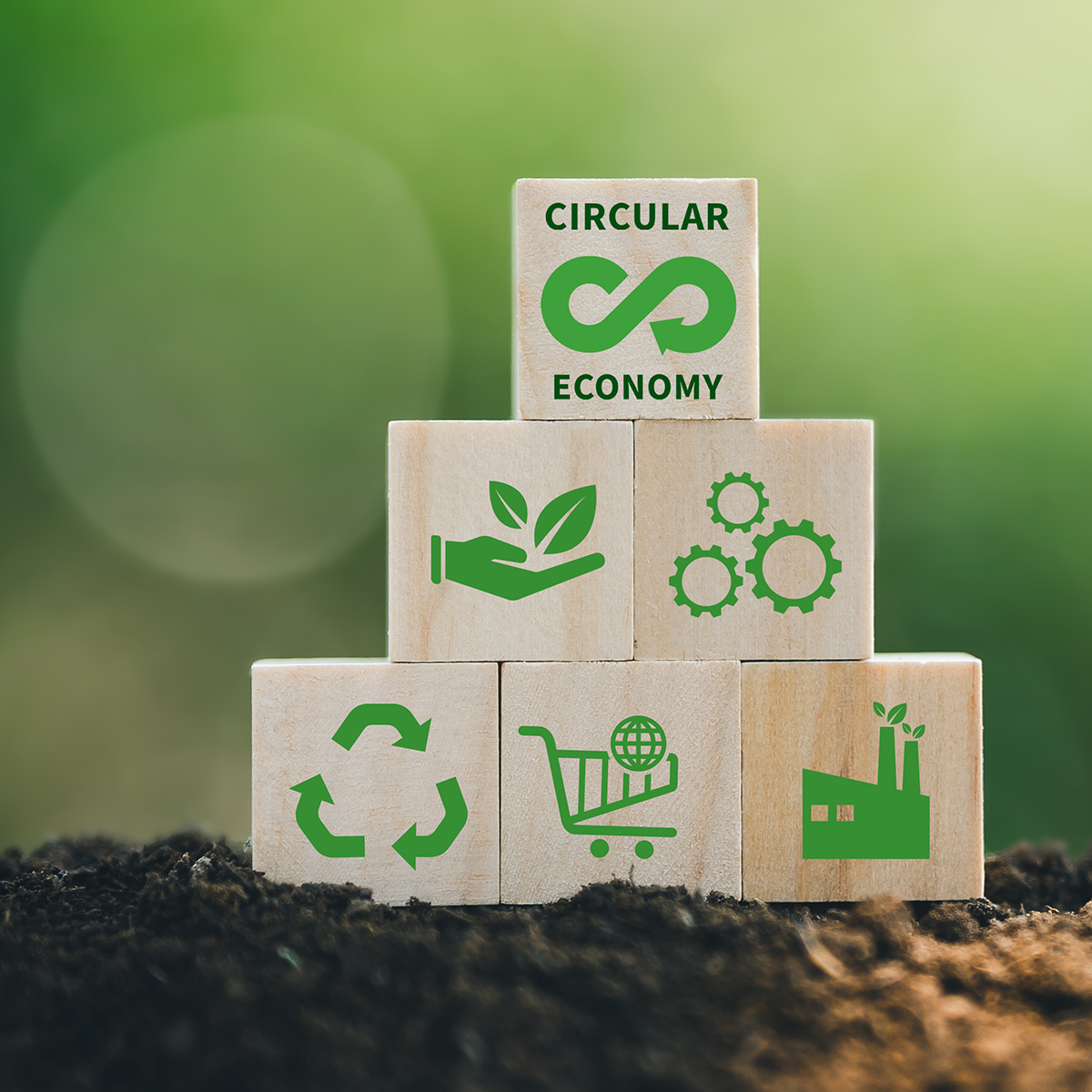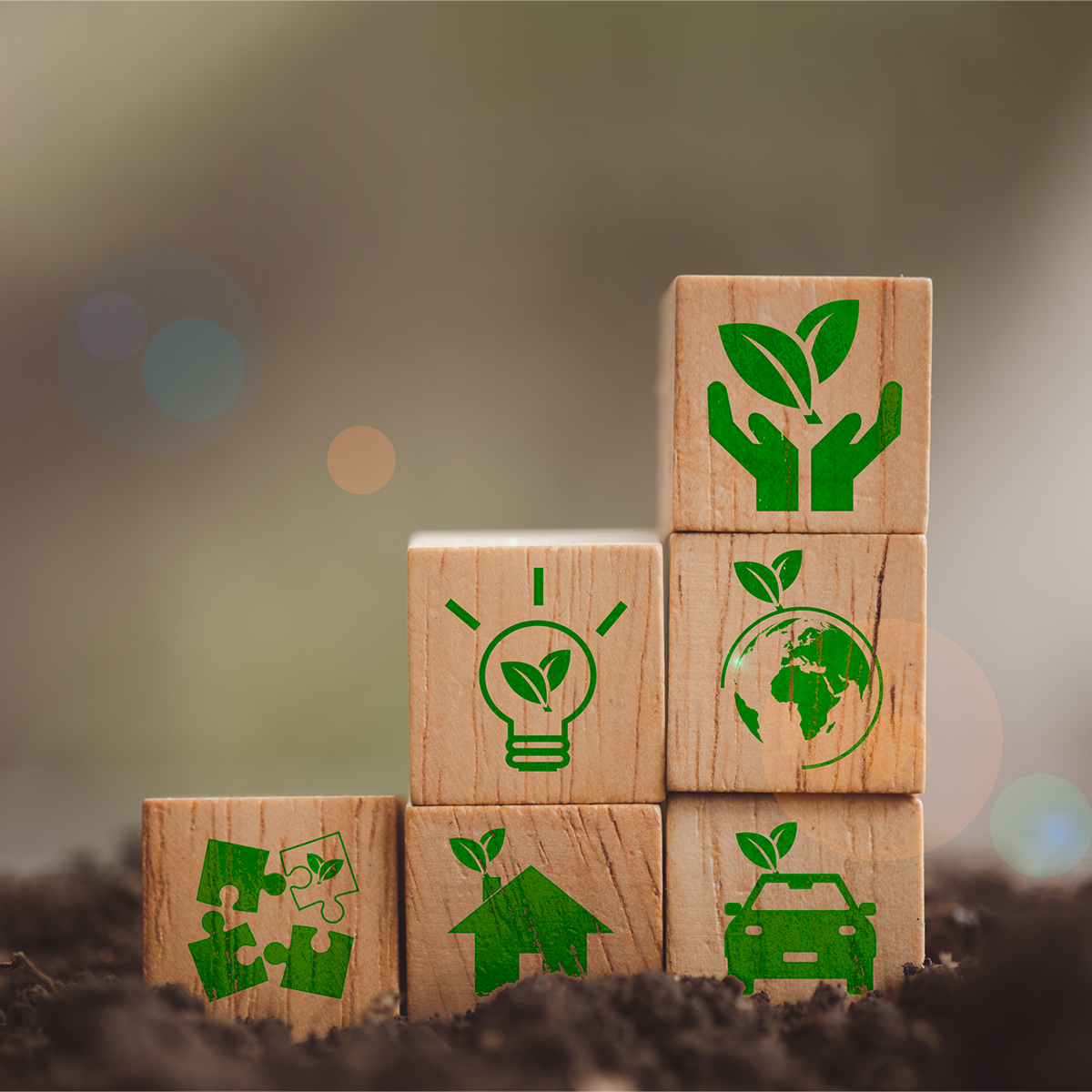At Takuwa, we believe that a truly sustainable world is one where all peoples enjoy free and fair access to plentiful water supplies. We need to start by protecting and maintaining our water resources, and then ensure fair and equitable access.
To this end, Takuwa has identified eight materialities. Conservation of water resources is the starting point, providing a solid foundation for addressing the eight materialities in turn, which will ultimately help us to tackle the major issues of our times: the environment, poverty, and education.
Sensors can be used to conserve water and slow down the rate of resource depletion, thereby allowing more equitable access to existing resources. Fair and equitable access to plentiful water supplies will eliminate conflict over access, allowing people to live happy and productive lives in peace and security, with respect for diversity and the rights of others. In the spirit of altruism, Takuwa supports former employees who start up new businesses in other parts of the world, because this creates jobs and helps to reduce poverty. Takuwa is also committed to using education as a tool to disseminate technology to others. To this end, we use our profits to support educational programs for children who have been unable to receive an education. Takuwa has designed a model for tackling major social challenges that involves installing our products in the spirit of altruism. By promoting this model around the world, we can help to create a sustainable future free of war and conflict.
Takuwa has drawn up a Business Continuity Plan (BCP) for a potential earthquake event, to mitigate the impact of climate change on our operations. The BCP will soon be updated and expanded to include flood damage as part of our Business Continuity Management (BCM) process. We have also upgraded our company-wide health and safety programs in line with ISO 45001 requirements, with a particular focus on heatstroke and employee health care. This follows a recent proclamation by the United Nations Secretary-General regarding extreme heat conditions that can cause the earth’s crust to heat up and even boil, as distinct from climate change.
Takuwa supplies climate change mitigation solutions such as fault diagnostic systems that feature multiple sensor arrays linked together via wireless networks of water level gauges.
Our newly developed range of sensor devices is powered by renewable energy (or energy harvesting) to help accelerate the decarbonization of society. Meanwhile, we are also working to retrofit solar panels to existing sensor installations where possible, using the power of the sun to minimize electricity consumption and reduce greenhouse gas emissions.
The cumulative reduction in CO2 emissions achieved by the products that we supply in one year is greater than the CO2 emissions generated by our production operations over the same period. In this way, Takuwa is actively helping to lower greenhouse gas emissions.
We also monitor the environmental impacts associated with our production operations and the use of our products in the field, in order to identify potential sources of greenhouse gas emissions. This monitoring data is made available in the public domain.
Takuwa is committed to supplying low-energy and environmentally-friendly products. To this end, we are working on a new certification system whereby products with outstanding environmental credentials would be designated as Takuwa Green Products (provisional title).


Almost every one of our products is designed with environmental considerations*in mind, with compact form factors and minimal energy usage. By continuing to design and supply environmentally responsible products, Takuwa is actively helping to address environmental challenges such as global warming, resource depletion and waste output. *Environmental considerations, as set out in Environmental Product Design Standards, include resource consumption (smaller/lighter products); energy consumption (low-energy designs); product life (durable designs, use of common components/housings); recycling (switching to recyclable materials); and pollution (RoHS compliance).
By helping to reduce the level of damage caused by floods and other natural disasters, our products also minimize the volume of natural resources (such as forest timber) required for rebuilding and reconstruction.
Future plans include installing treatment systems at our production plants for recycling water used in processes such as evaluation testing, and setting up local area water recycling schemes featuring unique Takuwa water usage strategies at head office as well as local branches and sales centers.
The 2017 Environmental Principles document calls for pollution to be eliminated from all stages of the production process (development, design, manufacturing, testing and inspection, and shipment), through ongoing monitoring and updating of pollution strategies, along with environmentally responsible deployment of Takuwa products to prevent unwanted impacts on water resources at all stages of the life cycle from initial installation to maintenance and servicing and eventual decommissioning.
Our pollution reduction strategies are part of an environmental management system designed in accordance with ISO 14001, the internationally recognized standard for environmental management. Takuwa production processes do not pollute the water, generate dust particles, or produce excessive noise. We regularly audit the production facilities of the participating companies that are our stakeholders to ensure compliance with our requirements. Where we engage subcontractors, they are similarly expected to operate to the same standards.


At Takuwa, we see ourselves as a town-building enterprise. Our sensor devices are designed to protect local communities from natural disasters. The more Takuwa sensors are installed in the community, the more we can contain the extent of damage caused by natural disasters and minimize the use of precious natural resources such as forest timber and minerals in post-disaster rebuilding and reconstruction works.
In this way, by helping to prevent resource depletion on a global scale, we are also helping to protect diversity and promote regeneration. Our efforts to limit the impact of disasters and conserve forests and natural woodlands will help to preserve the fundamentals for all forms of life, namely, food, oxygen and shelter. In other words, Takuwa is contributing to biodiversity. With our ISO 14001 certified environmental management system (EMS), we are working to minimize the impact of our operations on the environment and on local communities.
Looking ahead, we plan to use Takuwa sensors to monitor environmental impacts on nearby rivers, forests and ground soil, with monitoring data to be made available in the public domain.
Takuwa received ISO 9001 certification for quality control in 2001, followed by ISO 14001 for environmental management, ISO 45001 for occupational health and safety management and ISO 27001 for information security management. These certifications demonstrate our commitment to sound management practices, particularly in regards to product quality and the safety of customers and other stakeholders.
ISO certified management systems require that quality and safety standards for products and services are constantly assessed and updated in line with market demand and public expectations, particularly with respect to legal compliance, safety policies, product failure response procedures, product safety information disclosure to clients, and in-house training on product safety.


In order to drive the transition to a sustainable world with water conservation as the starting point, Takuwa actively embraces exciting new advances in digital technology that are constantly emerging. We use risk management to move beyond existing flagship products and market segments and explore new sensor designs suitable for the digital world that will soon arise through technology reforms and the associated transformation of industry structures.
At Takuwa, we believe that in the modern era of uncertainty and turmoil, the only way for a company to survive and flourish is to continually take on new challenges and risks.
As a first step, we introduced an ISO 45001 certified OHSMS management system in 2021 to ensure that all employees are aware of the importance of risk assessment and basic principles of application. The next step was to acquire ISO 27001 certification and set up an information security management system for the digital age. This was followed by the newly created DX department in 2024, which has a mandate to execute special assignments from senior management. Under this new structure, we embarked on the development of advanced sensors designed to deliver new forms of value in new fields for the company.
“Dynamic Equilibrium” author Shin-ichi Fukuoka describes dynamic equilibrium as the ongoing process of change that is necessary in order to maintain balance.
His theory applies perfectly to companies. While a company may appear to be an unchanging entity when viewed from the outside, internally it is continually evolving, replacing personnel and updating values in accordance with developments in the wider world. Continual evolution is necessary for the company to survive — just like the process of cell metabolism in the body.
As a manufacturer with a workforce of 160, Takuwa is the embodiment of the saying, “A company is its people.” Our medium to long term growth is directly dependent on the skills, knowledge and expertise of individual employees. Our people are our greatest asset; our very survival is in their hands.
Takuwa is committed to diversity in the workplace. We strive to provide an environment in which all employees are able to be their best, completely independent of personal attributes like gender, age and nationality. This is a key prerequisite in the recruitment process. At the same time, we strive to offer flexible workplace conditions tailored to evolving internal and external expectations, to ensure that all employees feel safe and supported.
We also devote considerable resources to coaching and training programs designed to help each and every employee to attain their full potential and maximize their market value, with a focus on developing independent and logical reasoning and analysis skills as well as management competencies.
Our ultimate goal is to empower our entire workforce, not just a select few.


Respect for diversity, regardless of attributes such as gender, age and nationality, is a key prerequisite in the recruitment process. Roles are allocated within the organization on the basis of fairness and equality. Equality of opportunity is our guiding principle. We do not tolerate discrimination in any form.
Upcoming work on human rights and workplace policies
Education is a huge social challenge that Takuwa is keen to tackle and eventually resolve in the
future.
There are children all over the world who are unable to receive an education due to their
circumstances. Children are our future. They deserve an inclusive education in a world of equal
access to education for all.
At Takuwa, we want to create a sustainable world where everyone has
access to plentiful water supplies, and where every child can receive an education that empowers
them to shape their future. Ultimately we want to play our part in bringing fully inclusive
education to the entire world.
If you would like to know more about any of our products or services, please do not hesitate to
contact us.
You can use the inquiry form on this site or contact us by telephone.